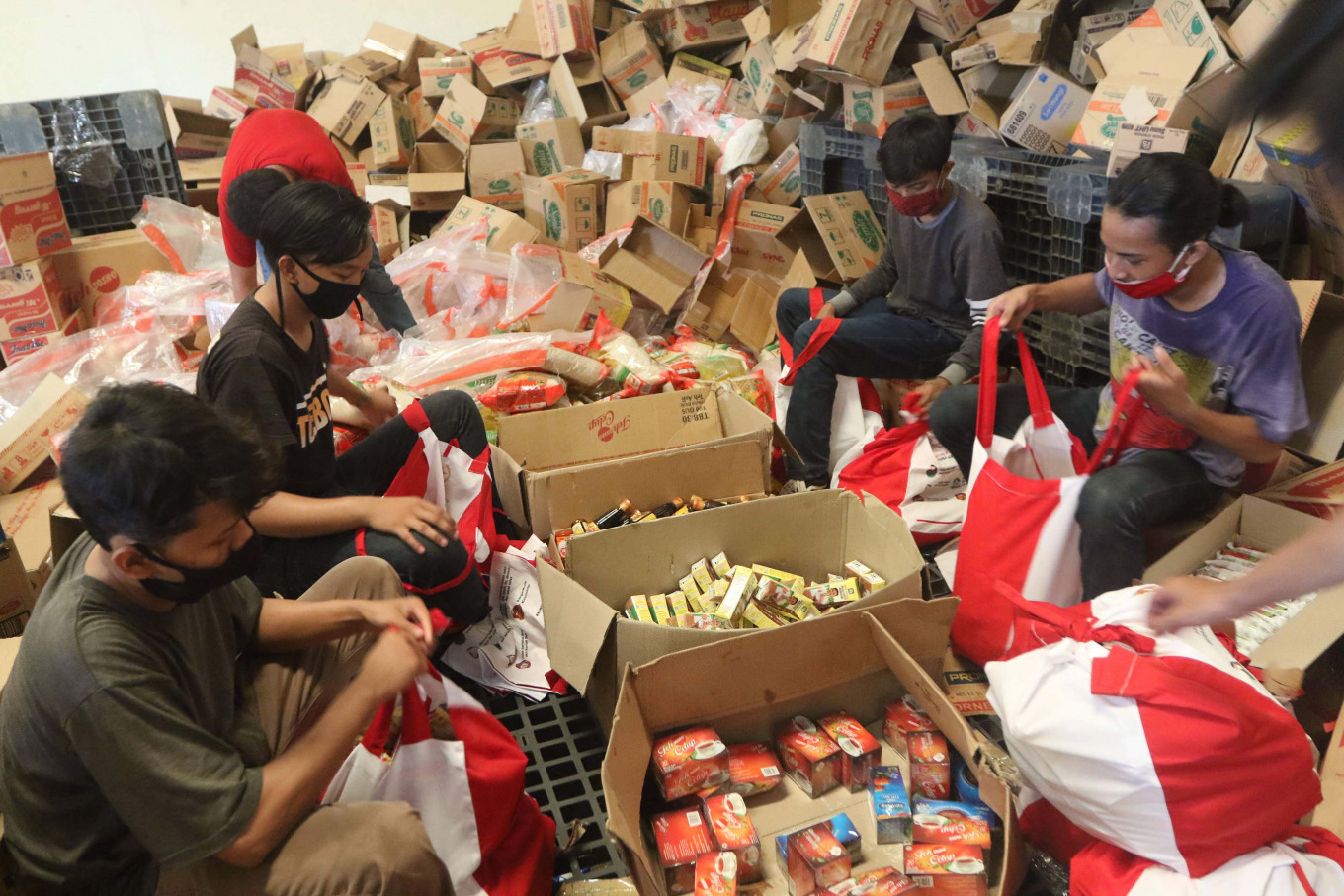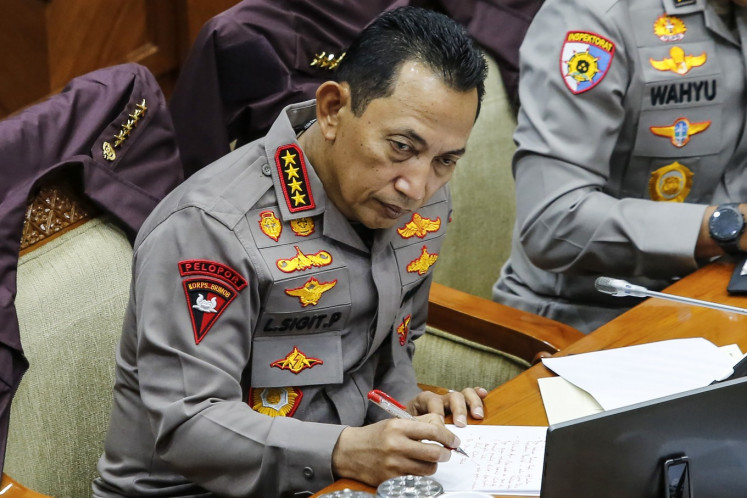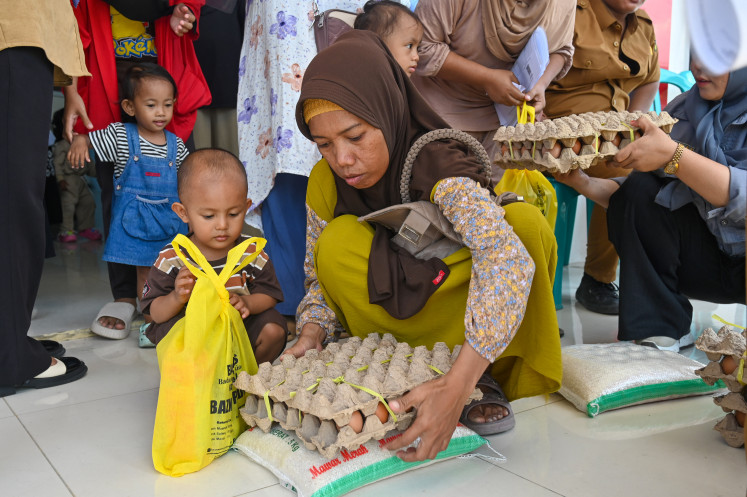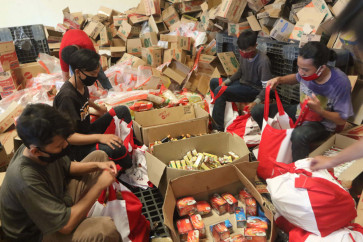Popular Reads
Top Results
Can't find what you're looking for?
View all search resultsPopular Reads
Top Results
Can't find what you're looking for?
View all search resultsAnalysis: Retail stocks empty as Jokowi distributes rice to 22m families
Change text size
Gift Premium Articles
to Anyone
A
s President Joko “Jokowi” Widodo’s ramped up the rice social assistance program for 22 million poor households in January ahead of the general election, premium rice disappeared from modern retailers. Responding to the scarcity, the President ordered the National Food Agency (Bapanas) and the State Logistic Agency (Bulog) to flood the market with rice from state reserves.
Roy Mandey, chairman of the Association of Indonesian Retailers (Aprindo), explained that members such as Alfamart and Indomaret had decided not to restock their shelves after they could not find supplies of affordable premium rice, as the commodity’s wholesale price had exceeded the government-set price ceiling (HET). At the same time, they could not obtain medium-grade rice from Bulog under the agency’s price stabilization (SPHP) program, which had been redirected to the social assistance program.
Bulog distributed around 850,000 tonnes of SPHP rice as of the end of January, but primarily for Jokowi’s rice social assistance program. Many alleged that the distribution of rice to 22 million households ahead of the election was intended to bolster the electability of presidential pair Prabowo Subianto and Gibran Rakabuming Raka.
President Jokowi has insisted there is no connection between the rice distribution program and the rice shortage at modern retailers.
Bulog CEO Bayu Krisnamurthi has attributed the shortage to high farm gate prices, due to a decline in domestic rice production over the last eight months as a result of impacts from the El Niño weather phenomenon. Bulog records show that farm gate prices for premium rice currently stand above Rp 15,000 per kilogram, significantly exceeding the HET of Rp 13,900 per kilogram as set by Bapanas.
Bapanas data from last Tuesday showed that the price of medium-grade rice had increased 0.43 percent to Rp 13,890 per kilogram, reaching a high of Rp 20,980 in Papua Highlands province and a low of Rp 12,550 in Jambi. Meanwhile, the price of premium rice had increased 0.76 percent to Rp 15,870 per kilogram.
The reports of rice scarcity at modern retailers prompted Jokowi to summon the Bapanas and Bulog chiefs as well as a number of ministers to address the problem. After learning that Bulog still had reserves of around 1.2 million tonnes of rice, the President instructed Bapanas and Bulog to flood the market with rice. Bulog was also told to increase the SPHP rice allocation by 150,000 tonnes to 200,000 tonnes to address the shortage.



















